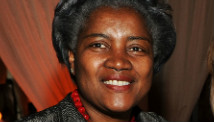TOKYO (Reuters) - Asian shares recouped some of the previous session's steep falls as investors reassessed fears of the Federal Reserve ending its ultra-soft monetary policy earlier than expected, but weak U.S. and European data capped Friday's recovery.
European markets are seen rebounding, with financial spreadbetters predicting London's FTSE 100 <.ftse>, Paris's CAC-40 <.fchi> and Frankfurt's DAX <.gdaxi> would open up as much as 0.6 percent. U.S. stock futures were up 0.3 percent to suggest a solid Wall Street start. <.l><.eu><.n/>
The dollar lost 0.3 percent against a basket of currencies <.dxy>, pulling away from a 5-1/2-month high hit on Thursday, as data showing weak business conditions in parts of the United States and across Europe pushed out expectations of any policy tightening.
"It's unlikely that the Fed would begin to wind down its QE (quantitative easing) program until the U.S. economic growth is improving at a faster rate than currently," said Ric Spooner, chief market analyst at CMC Global Markets in Sydney.
Most risk assets had slid to their lows for 2013 on Thursday, in part because of worries the Fed could prematurely paring back its bond buying program. But the weak data in the United States and Europe saw that view quickly reconsidered.
Gold rose 0.5 percent to $1,582.96 an ounce after having hit a seven-month high on Thursday.
Tokyo's Nikkei stock average <.n225> closed up 0.7 percent, reclaiming about half of Thursday's drop.
The MSCI's broadest index of Asia-Pacific shares outside Japan <.miapj0000pus> was up 0.2 percent. However, that was only a fraction of its 1.5 percent tumble on Thursday, and the index was set for a weekly loss of 0.8 percent.
Upbeat comments from the central bank governor helped Australian shares <.axjo> jump 0.8 percent, with investors buying back after stocks slumped 2.3 percent on Thursday.
Hong Kong shares <.hsi> bucked the regional trend and fell 0.3 percent while Shanghai shares <.ssec> inched up 0.1 percent.
"In America they're kind of revealing that actually the next thing we need to do is start tightening, and that's why global stocks are very volatile at the moment and we're going to be caught up in that," said Damien Boey, equity strategist at Credit Suisse.
The euro rose from multi-week lows hit on Thursday, gaining 0.4 percent to 123.22 yen. The dollar inched up 0.2 percent against the yen to 93.26.
London copper climbed 0.9 percent to $7,934 a metric ton, after posting its biggest single-day slide this year on Thursday.
Crude oil futures also recovered from Thursday's sell-off, with U.S. crude up 0.3 percent to $93.11 a barrel and Brent rising 0.5 percent to $114.05.
"After the Fed, people seemed to have a little less conviction that we are going to see indefinite low dollar rates, which have attracted a lot of interest in commodities, especially precious metals. But the macro picture hasn't changed tremendously and the underlying demand is still strong," a Hong Kong trader said.
U.S. 10-year Treasury yields were a tad higher in Asia, having eased in the previous session.
The German Ifo business sentiment index at 0900 GMT should offer more clues on the health of European economy, but overall sentiment is expected to remain cautious ahead of elections in Italy over the weekend.
Most investors expect a centre-left government to win and continue with reforms to tackle Italy's debt problems. But a resurgence of former leader Silvio Berlusconi has raised new worries.
(Additional reporting by Thuy Ong in Sydney and Florence Tan and Rujun Shen in Singapore; Editing by John Mair)

